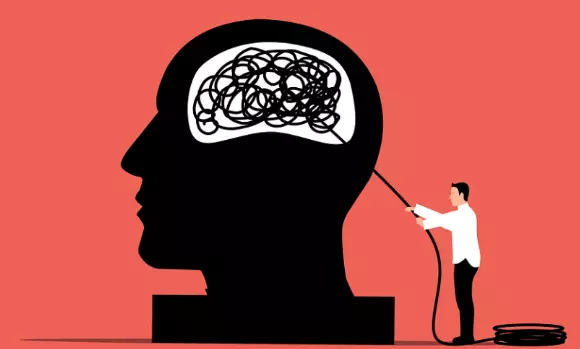
Anxiety is a is a normal reaction to stressful situations. It’s an emotion that we all experience at different times in our lives. It can be triggered by a specific event, such as taking an exam, or it can be a more general feeling of unease, such as when we are starting a new job. For most people, anxiety is a short-lived and manageable feeling. However, for some people, anxiety can become more severe and long-lasting, and can start to interfere with everyday life. When this happens, we can talk about a disorder.
-
How to tell the difference between anxiety and anxiety disorder?
Knowing the difference between standart anxiety and anxiety disorder can help you talk to your doctor about your symptoms. General anxiety disorder can look like "ordinary" anxiety at first. However, it is characterized by unrealistic or excessive worrying about everything, and you may worry about things you can't even name.
-
Rather than simply being anxious, two things must be present to define the presence of an anxiety disorder:
-
Typical anxiety is a reaction to stress and this is normal. Once the stressor is removed, anxiety usually goes away. However, in the presence of anxiety disorder, even eliminating the stressor or trigger may not always reduce anxiety.
-
Another common finding is an unusual and over-anticipatory response to uncertainty.
"Abnormal" anxiety is defined as excessive and persistent worry that does not go away even when there is nothing to make you feel stressed or nervous about.
-
What can you do to relieve anxiety attacks?
-
Take slow, deep breaths.
-
Deep breathing helps you calm down. You don't need to worry about focusing on a certain number of breaths as in different exercises, it is enough that your breaths are deep and even. So you can relax and think calmly.
-
Sit in a quiet, dimly lit room.
Breathing deeply under dim light in a quiet, calm room will help you relax and get away from your worries. Focusing on your breathing while sitting will make you feel safe and peaceful and will reduce your anxiety.
-
Focus on the moment you are in.
Anxiety is a future-oriented state of mind. Focus on the present instead of worrying about what will happen next. Ask yourself questions that will remind you of the situation you are in and remind yourself that all is well.
-
Place a cold pack on your forehead or neck.
The cold will refresh you and relax your mind. You will focus on the cold pack you put in, so you will get away from thinking about your worries.
-
Listen to songs that will relax you
Music, like the sound of waves, has a relaxing and peaceful feature. When anxiety attacks bother you, you can listen to music that relaxes you, makes you think positive thoughts, or removes anxious thoughts from your mind. But listening to the same song in every anxiety attack may cause you to worry more when you hear the song.
-
Keep yourself busy or take a walk
Get up, engage in a hobby, go for a walk or do something physical to distract you at the moment. Removing your mind from the anxious thought patterns it has learned, will enable you to regain control.
-
When you feel the start of an anxiety attack, apply the rule of three
Look around and name three things you see. Then say the three sounds you hear. Finally, the three parts of your body; wiggle your wrists, fingers and arm. Applying this rule as soon as you feel the onset of an anxiety attack will help you calm down and get rid of the anxious thoughts that are spinning in your mind at the speed of light.
